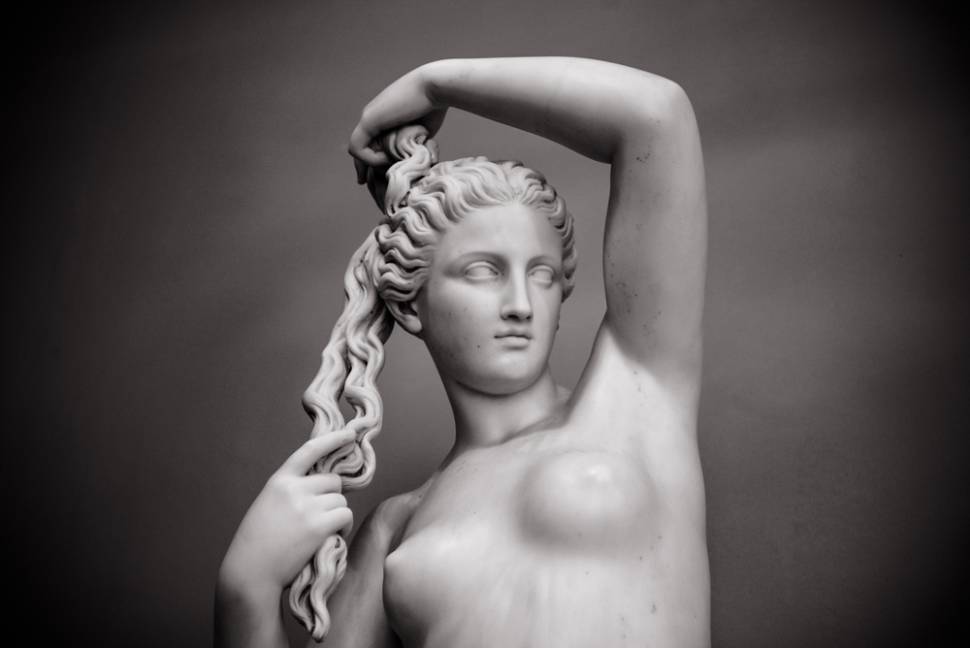The Position Of Women In Ancient Greece

The woman in ancient Greek society during the archaic and classical periods was mainly confined to the site of the house that was the foundation of ancient Greek society. In it, women were born, raised, and lived without participation in public life. Ancient Greek society was patriarchal. The dominion of men was absolute in women’s lives, while their position in society was below that of slaves who had gained their freedom.
The birth of a girl was not pleasant for parents. To help their daughter get married, they would have to endow her, which meant a financial burden on the family. The women looked after only the things that concerned the house and lived to be the mothers of the legitimate children of the men. Those belonging to Royal and aristocratic houses were indirectly allowed to participate in political decisions due to living there since their homes were also centers of political activity.
Starting from the Homeric epics, the woman, both in The Iliad and in the Odyssey, is presented as a weak creature under the authority of man. These writings provide useful information about how people lived then and how society was structured.
In Athens of the classical period, women had no right to bear the title of citizen, like men, which would give them the right to participate in public life. Therefore, for Athenian society, a woman was merely the wife, daughter, or mother of men and was not only excluded from politics but also from education and possession of any property. The Athenians got married while they were very young. This resulted in their increased mortality in childbirth. Also, children were thought to belong more to their fathers than to women in some way.
Women were, however, allowed to get a divorce from their husbands and property back if another man was willing to marry them and support them financially. In ancient Athens, besides the legitimate wives, there were the concubines and courtesans who were living more freely than other women. A woman could also become a priestess, which was a high public position she could conquer. Only women from the low social classes practiced some professions, such as selling some of their products.
The Spartan society reserved a different attitude and a better position on a social and political level for women. The family structure was less strict, and Spartan women had more rights because they were mothers of men. The monogamy that was vital in Athens did not apply to a woman in Sparta. Women had no civil rights, not even in this city.
However, they knew that the city required girls’ education and granted them the right to have property of their own. They did not force them to marry prematurely and did not accept domestic violence against them. At some point, some of them acquired so much wealth that they managed to influence the political affairs of their city. In other regions, women, in the absence of men, had the right to assume the house’s captaincy and even govern their state. In some parts of ancient Greece, women had their own property and took care of it themselves.
The creation of the Greek kingdoms gave women greater access to power, although they never gained political autonomy. Most of the women of the high classes were engaged in charitable work; the role of women in ancient Greek society, despite exceptions, continued to be limited to charitable action or becoming priestesses or prelates. The most significant change began to occur during the last period of the ancient Greek world when women began to be considered citizens.
Interestingly, even though the center of civilization was considered Athens, other places in ancient Greece were more culturally developed. The combination of different social structures gave people the opportunity to develop. Even though the position of women at that time was underestimated, considering the overall evolution of human civilization at the time, we could say that compared to other places, ancient Greeks were ahead of their time.
Have you read?
Rebranding for all the right reasons by Charlene Gervais.
3 Ways CEOs Can Create a More Resilient Workforce by Bjorn Reynolds.
The Number One Question Leaders Are Not Asking That Will Change the Game When They Do by Stef Ziev.
What Leadership Skills in the 21st Century Leaders Need by Prof. M.S. Rao, Ph.D.
CEO Spotlight: Bhaktraj Singh, CEO of Hazelton Group.
Add CEOWORLD magazine to your Google News feed.
Follow CEOWORLD magazine headlines on: Google News, LinkedIn, Twitter, and Facebook.
Copyright 2024 The CEOWORLD magazine. All rights reserved. This material (and any extract from it) must not be copied, redistributed or placed on any website, without CEOWORLD magazine' prior written consent. For media queries, please contact: info@ceoworld.biz








